How To Fix Your Garden Dirt
Healthy soil is important for growing strong, vigorous plants that resist pests and diseases and produce abundantly. Whether you are starting with fresh, quality soil or gardening in your native topsoil, improving your soil is a continuing process.
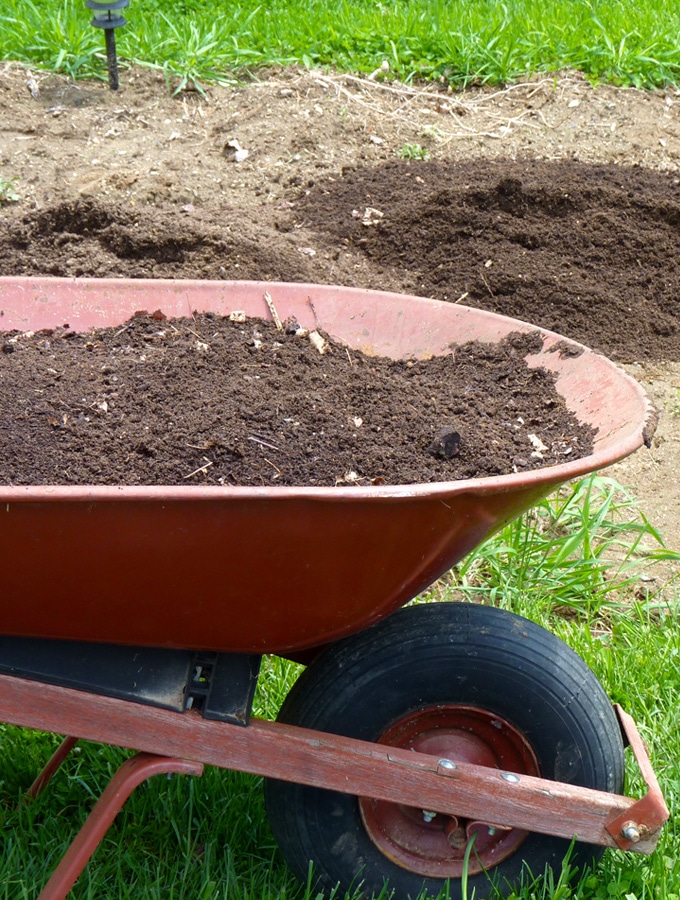
Soil is alive and made up of many parts, including mineral particles, water, organic matter, air, and microorganisms. The balance between these parts is what needs to be sustained for a healthy garden.
Just like all living things, soil needs to be fed in order to provide a nourishing environment to grow your vegetables.
The Basics to Healthy Garden Soil
Healthy productive plants start with healthy garden soil. The soil feeds the plants so it must be fertile to support plant life. Soil must also be loose to allow for root growth, drainage, and air circulation.
Healthy soil will be rich in nutrients, minerals, and organic matter. The organic matter is the key, since it provides nutrition for the soil, promotes a bio-diverse sub-culture in the soil, which benefits plant life, and promotes drainage and aeration for the soil.
What is Organic Matter?
Organic matter is anything that contains carbon compounds that were created by living organisms. Some examples are plant debris, shredded leaves, animal manure, and grass clippings.
What Does Organic Matter Do for the Soil?
Organic matter plays a key role in supplying plants with nutrients, improving soil structure, binding pollutants, and aiding in soil buffering.
Organisms in your soil break down organic matter and convert it into nutrient-rich humus. As organisms feed on the organic matter, they tunnel and create pockets and lighten the soil allowing air and water to reach the roots.
A soil that starts out as mostly heavy clay will compact easily, become waterlogged, and prevent air, water, and nutrients from reaching the roots. Adding organic matter to clay soil will help improve the structure by allowing the soil drain better and make it easier for the plants' roots to grow.
A soil that is light and sandy will drain quickly before the roots can get nourishment. Adding organic matter can also help sandy soil hold together better and retain more moisture and nutrients.
7 Ways to Improve Garden Soil
Any type of soil can be transformed into healthy garden soil with a little dedication and hard work. Improving your soil takes time and is an ongoing process. Organic matter needs to be replenished frequently to keep the cycle going. Below are seven ways you can improve garden soil.
1. Add Compost
Compost is decomposed organic matter, and it is the best thing you use to improve the health of garden soil. Working compost into soil will feed the soil, improve soil structure, enable soil to retain nutrients, promote good drainage while also absorbing water deep in the soil, keeps soil loose so air can reach plant roots, helps maintain a neutral pH, and protects plants from many common garden diseases.
Compost also feeds earthworms and other microbial life in the soil. The worms will tunnel through the soil to improve aeration and drainage while leaving behind their castings to increase soil fertility.
- How to Get Started Composting at Home
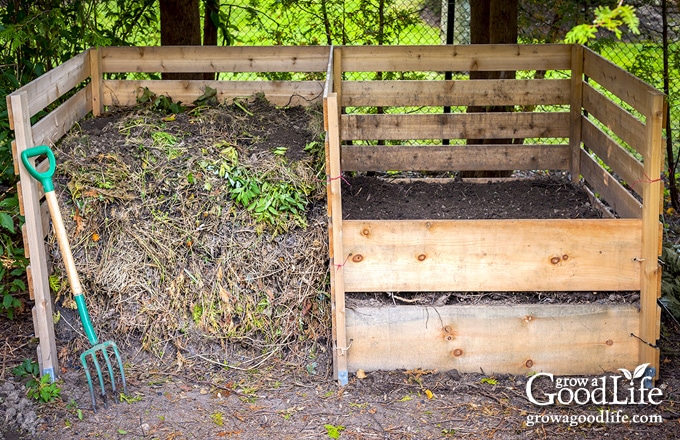
2. Get a Soil Test
Adding compost is not a once-and-done type deal. It is part of a continuous process to renew nutrients in the soil. Conduct a soil test every few years to determine what additional nutrients are needed to promote plant growth and production.
Soil testing kits are sold online and wherever garden supplies are sold and are very easy to do yourself. Soil samples can also be taken to your local county extension office for a more in-depth analysis.
A basic soil test gives readings for soil pH, potassium (K), phosphorus (P), calcium (Ca), magnesium (Mg), and sulfur (S). A soil test will also let you know the level of organic matter, lead content, and give you recommendations for adjusting these levels.
Once you understand the nutrient shortages in your soil, you can nourish with soil with organic amendments for a boost of nutrients. For example, alfalfa meal can add nitrogen, phosphorous, and potassium to the soil. Worm castings are a great amendment for nitrogen. Bone meal provides phosphorus and calcium. Most often, a regular dose of all-purpose organic fertilizer is all that is needed.
3. Mulch the Soil Surface
Mulch is a must for healthy garden soil and strong plants. It stimulates natural growing conditions, retains soil moisture, keeps soil cool, and prevents weed growth.
The mulch will slowly decompose and add organic matter to the soil to increase fertility.
- 5 Ways Organic Mulch Helps Your Vegetable Garden
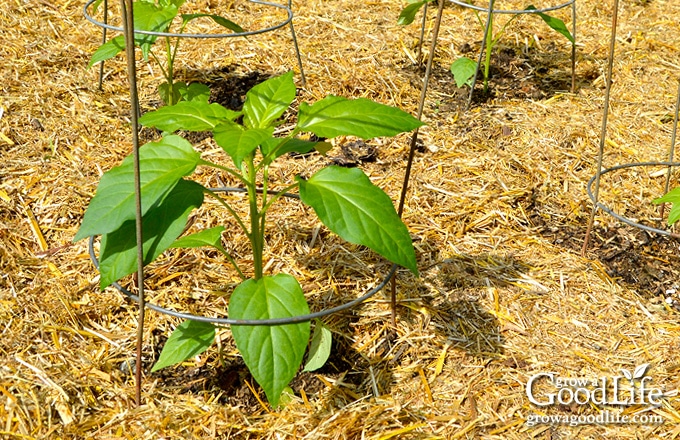
4. Prevent Soil Compaction
Soil that is hard and compacted will not allow water and nutrients to soak in and the soil becomes barren and dry. Tiny plant roots cannot spread out in search of moisture and nutrients, so plants dehydrate and starve. Compact soil also impedes microbiological activity necessary to convert organic matter to nutrients that feed the plants.
Clay soil tends to compact easily with just the weight of winter snow and ice. Adding organic matter over time will balance the soil structure.
Working with soil that is too wet will also compact the soil. In spring, wait until the snow melts and the garden drains, and the soil is dry enough so a handful of soil doesn't stick together.
Prevent soil compaction by staying off of it. Walking on the soil compresses it and prevents water, air, and oxygen from reaching the roots.
Instead, establish permanent garden beds by dividing up your area to growing beds and walking paths so you never have to walk on the soil.
Size your garden beds so you can reach into all areas without stepping on the soil, about 3-4 feet wide. Allow enough room in between the beds for a wheelbarrow to fit through or a manual lawnmower if you are keeping grass in your paths, about 2-feet minimum.
- How to Build a Square Foot Garden
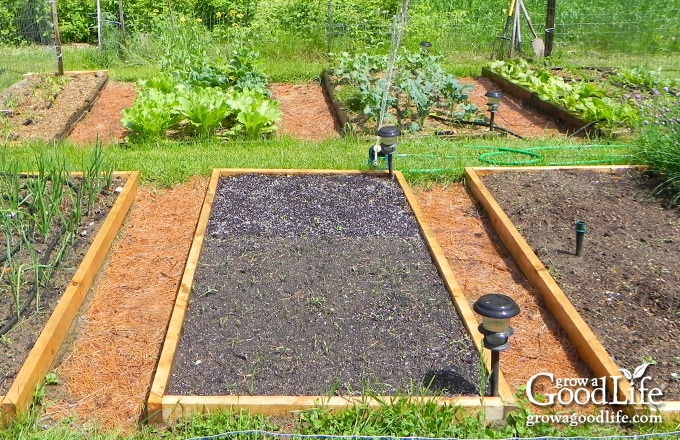
5. Rotate Crops Each Year
Planting crops in different garden locations every year prevents the depletion of nutrients and interrupts the cycles of pests and diseases so the garden soil stays healthy.
Potato pathogens provide a good example of how crop rotation keeps garden soil healthy. Nematodes and fungi that cause scabby skin patches on potatoes increase rapidly in the soil during just one growing season. This year's crop may not be affected, but if next year's crop is planted in the same location; it will be destroyed by the hungry disease organisms that are in the soil from the previous season. The disease spores and organisms will die out naturally if they do not feed on their preferred crop.
Follow the three-year rule for all garden crops. Rotate crops each year so that the same family of vegetables is not grown in the same place for three years. That gives enough time for soil pathogens to die.
Some plants also add to soil health. Peas and nasturtiums add nitrogen to soil. You can replenish the soil by planting nitrogen-producing crops after growing nitrogen-taking crops.
- Learn More About Crop Rotation for Your Vegetable Garden (coming soon)
6. Grow Cover Crops
Cover crops are grown primarily to benefit the soil, but some of them can serve double-duty by providing food too.
Planting a cover crop near the end of the garden season and allowing it to remain in the garden during the winter provides multiple benefits for the garden. A cover crop protects the soil from being eroded by heavy rain, winds, and snow melt-off. The crops will also prevent the soil from compacting, and stop weed growth during warm winter months.
Crops like kale, radishes, turnips, and other broad-leaf greens are ideal for use as cover crops and food sources during the winter. Clover, ryegrass, legumes, and peas are also good cover crops for winter.
Turn under any remaining crops in spring to act like a green manure. The cover crop plants will decompose after being turned under and increase soil fertility.
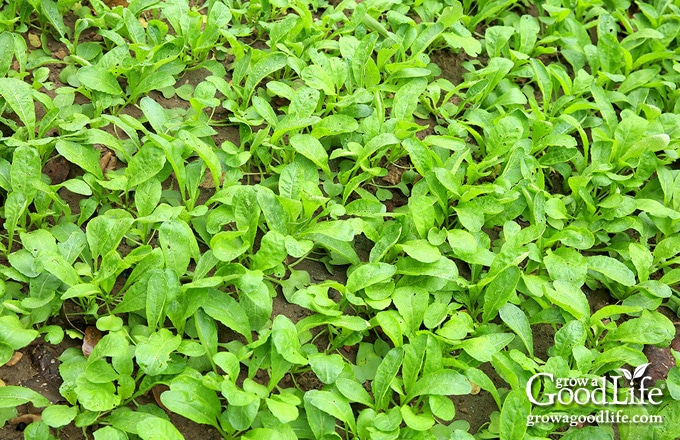
7. Add Aged Animal Manure
Add aged animal manure to improve garden soil health and fertility. Fresh animal manure is too hot and will burn plants, and may harbor pathogens harmful to humans. So allow the manure to age for several months to a year before adding to garden soil.
Chicken, cow, rabbit, horse, goat, sheep, and bat droppings are rich in nutrients and will improve soil structure when incorporated into garden soil.
Animal manures can be contaminated with pesticides and herbicides and cause herbicide injury in your vegetable garden. Once it is in your soil, it is difficult to eliminate. If you purchase manure, get assurance from the farmer that the animals didn't graze on or eat hay treated with pesticides or herbicides.
—
Improving and building healthy garden soil is an ongoing process that will reward you with vigorous, thriving plants that will produce abundant harvests from your vegetable garden.
Do you have any tips to add? Let us know in the comments below:
You May Also Like:
- How to Start Seeds Indoors
- 30+ Vegetables that Don't Mind Shade
- How to Grow a Low Maintenance Garden
Good planning is key to a successful vegetable garden
Whether you are new to growing your own food or have been growing a vegetable garden for years, you will benefit from some planning each year. You will find everything you need to organize and plan your vegetable garden in my PDF eBook, Grow a Good Life Guide to Planning Your Vegetable Garden.
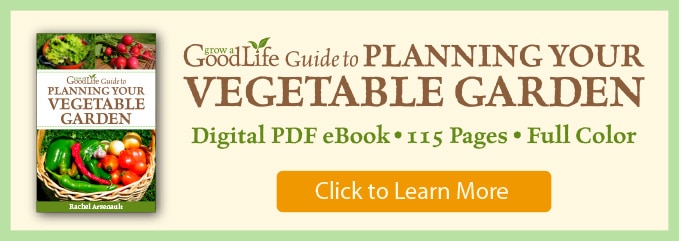
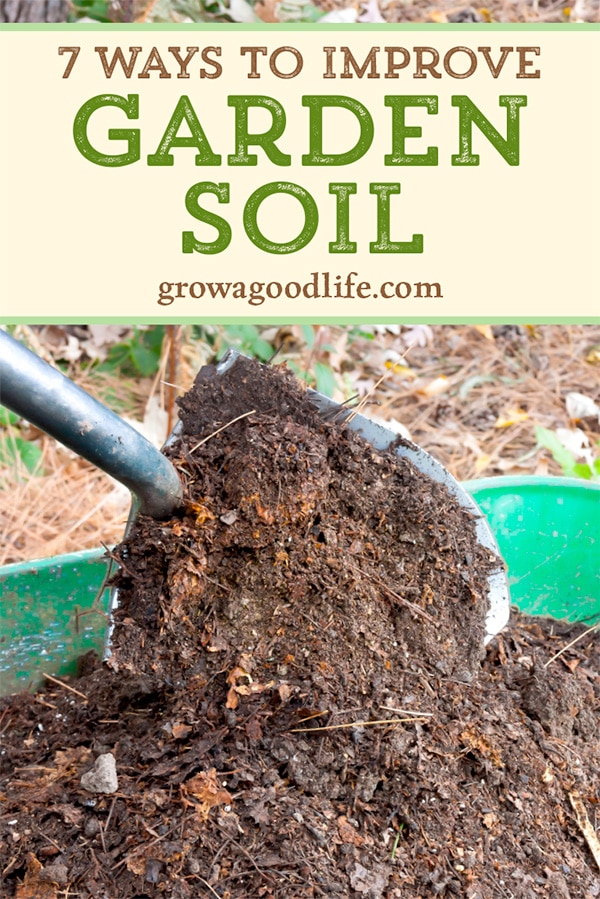
How To Fix Your Garden Dirt
Source: https://growagoodlife.com/improve-garden-soil/
Posted by: maserneash1938.blogspot.com

0 Response to "How To Fix Your Garden Dirt"
Post a Comment